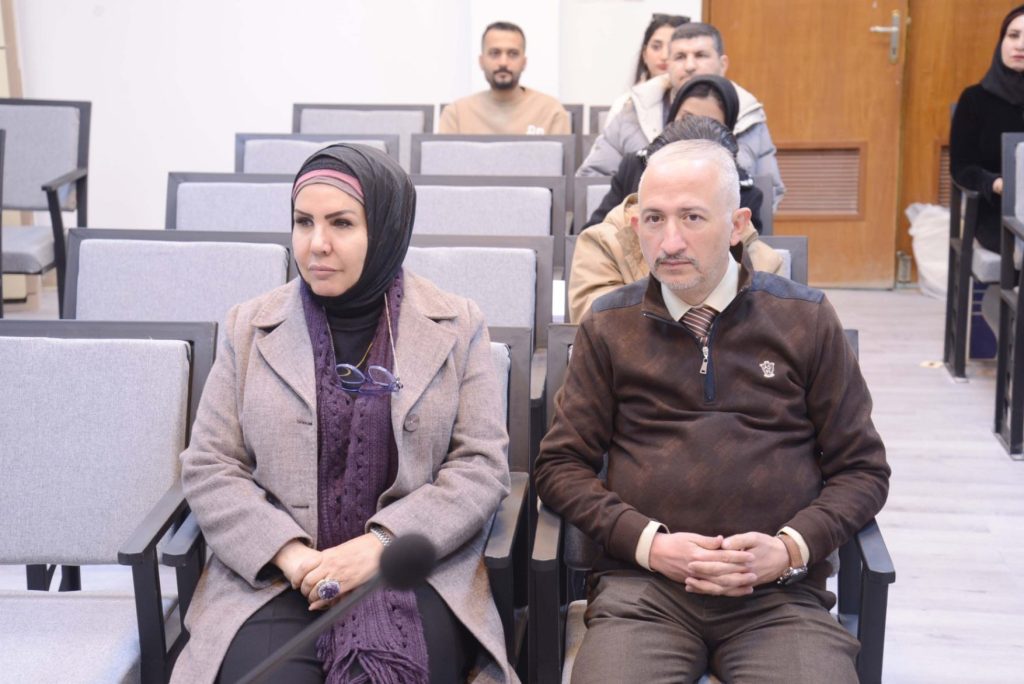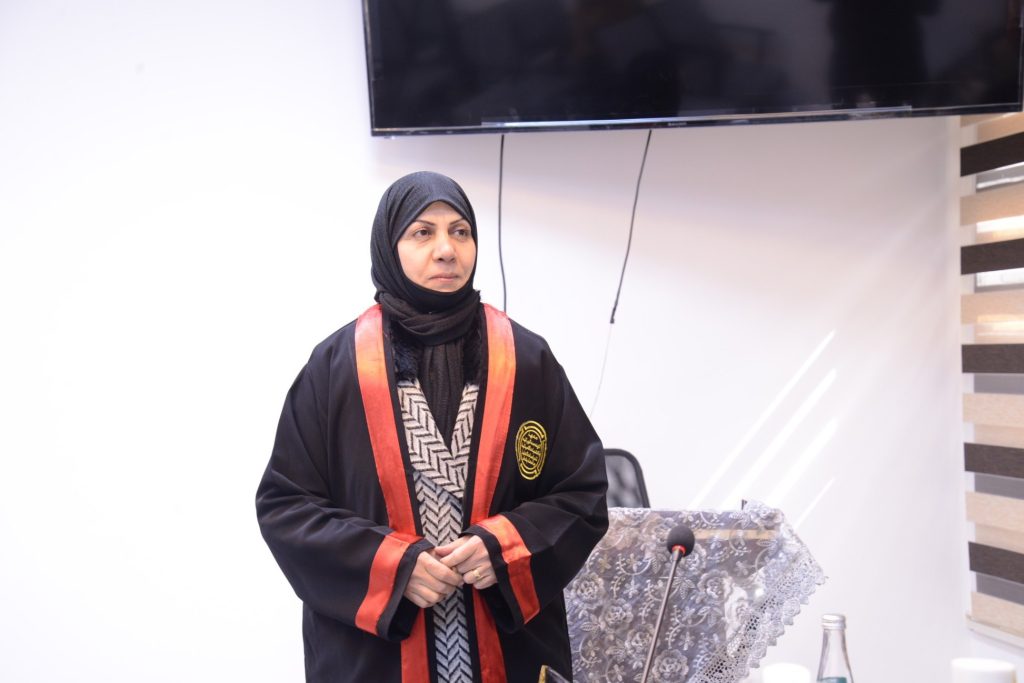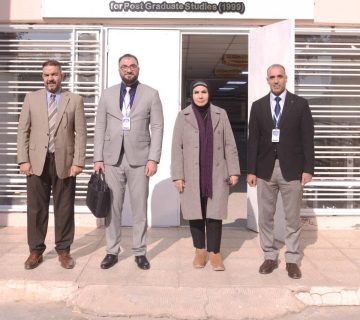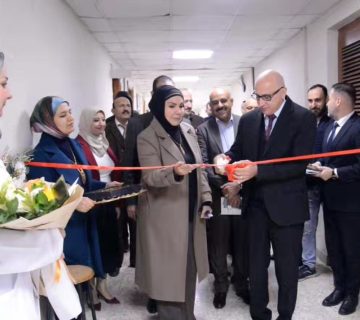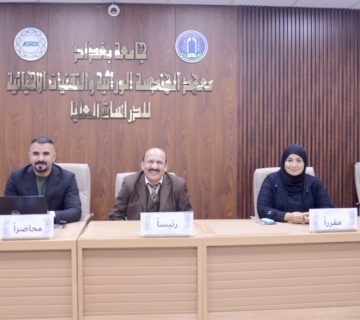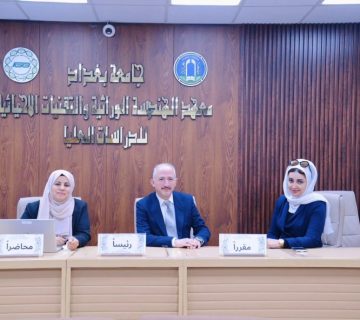The Institute of Genetic Engineering and Biotechnology for Graduate Studies at the University of Baghdad discussed the Master’s thesis of student “Najah Taqi Jawad,” titled: “The Relationship Between Genetic Patterns of Certain Blood Clotting-Related Genes and Some Serum Markers in Relation to Recurrent Spontaneous Abortion in Women from Najaf Province,” under the supervision of Professor Dr. “Ismail Abdul Reda Al-Lami.”
The study aimed to investigate the genetic relationship between the polymorphism of rs3136520 C>T in the F2 gene, rs1050782 T>C in the F13A1 gene, rs2069906 G>A in the PROC gene, rs3024731 A>T in the PROZ gene, and recurrent spontaneous abortion (RSA) related to blood clotting, as well as some biochemical indicators associated with recurrent spontaneous abortion, such as albumin, fibrinogen, prothrombin time, and partial thromboplastin time.
The study results showed statistically significant differences (p<0.05). The polymorphism of (rs1050782 T>C) in the F13A1 gene revealed that the wild-type GG genotype was 62% in the patient group compared to 10% in the control group, while the mutant AA genotype was 18% in the patients compared to 48% in the control group, and the heterozygous GA genotype was 20% in the patients compared to 42% in the control group.
The study concluded that the polymorphisms of rs2069906 and rs3024731 are not genetically associated with the susceptibility to recurrent spontaneous abortion in Iraqi women from Najaf. However, for rs3136520 in the F2 gene, an association was found between recurrent spontaneous abortion and the CT genotype of rs3136520 in the F2 gene among Iraqi patients from Najaf.
The study recommended examining a larger number of samples from women suffering from recurrent abortion to verify the association of these genes with the studied condition, examining other SNPs in the F13A1 gene related to recurrent spontaneous abortion, studying the expression of the FIBA1 gene in Iraqi women with RSA syndrome, examining other SNPs for the remaining genes studied in this research and their relationship to abortion, and finally, investigating other genetic tools for diagnosing recurrent spontaneous abortion.
